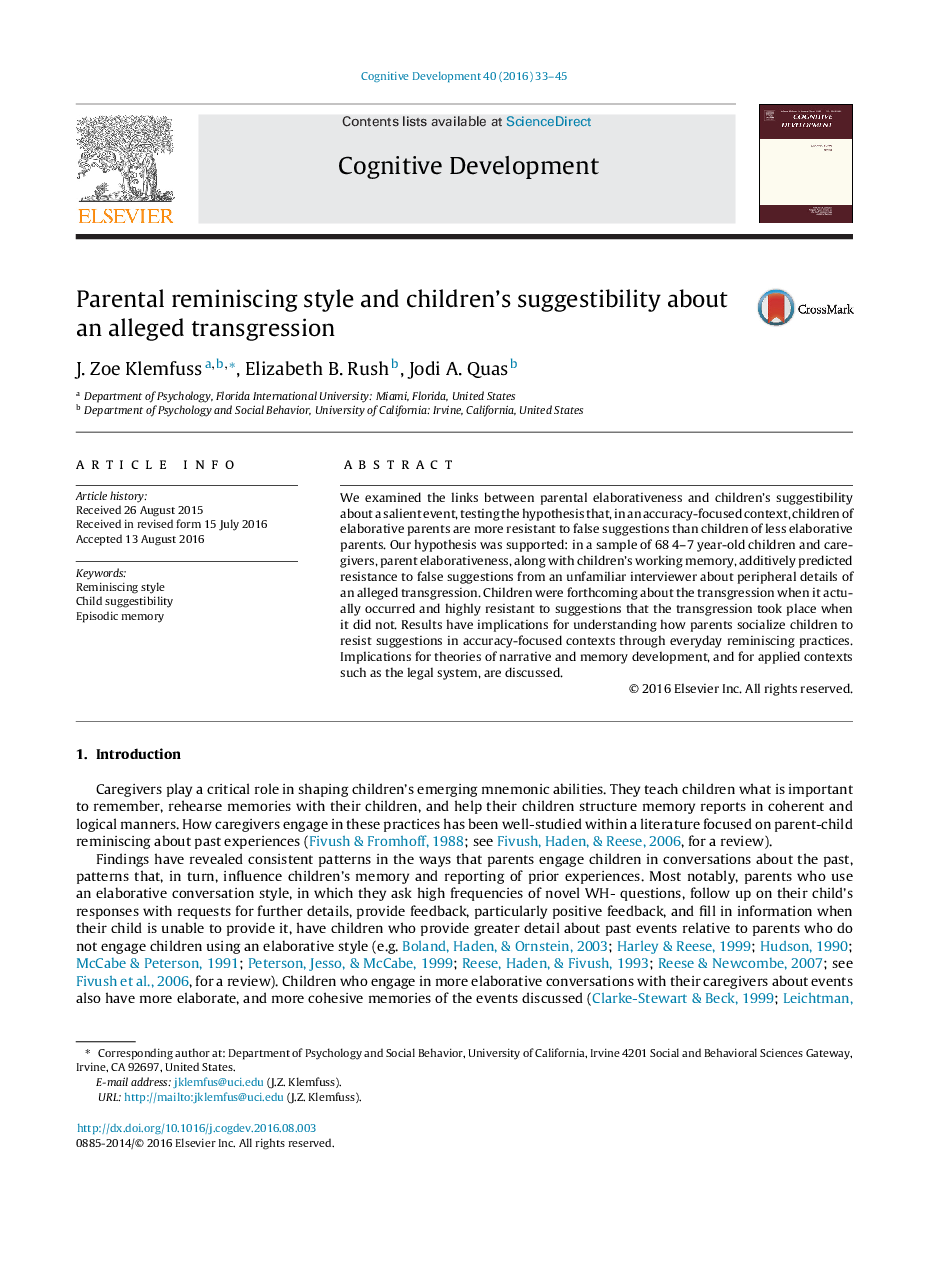| Article ID | Journal | Published Year | Pages | File Type |
|---|---|---|---|---|
| 916426 | Cognitive Development | 2016 | 13 Pages |
•We examine the effects of parent reminiscing style on children’s suggestibility.•A parent and interviewer questioned children about a salient event.•Working memory (WM) protected children against false suggestions.•Parent reminiscing style independently predicted resistance to suggestion.•Overall, children were highly accurate about whether the transgression took place.
We examined the links between parental elaborativeness and children’s suggestibility about a salient event, testing the hypothesis that, in an accuracy-focused context, children of elaborative parents are more resistant to false suggestions than children of less elaborative parents. Our hypothesis was supported: in a sample of 68 4–7 year-old children and caregivers, parent elaborativeness, along with children’s working memory, additively predicted resistance to false suggestions from an unfamiliar interviewer about peripheral details of an alleged transgression. Children were forthcoming about the transgression when it actually occurred and highly resistant to suggestions that the transgression took place when it did not. Results have implications for understanding how parents socialize children to resist suggestions in accuracy-focused contexts through everyday reminiscing practices. Implications for theories of narrative and memory development, and for applied contexts such as the legal system, are discussed.
